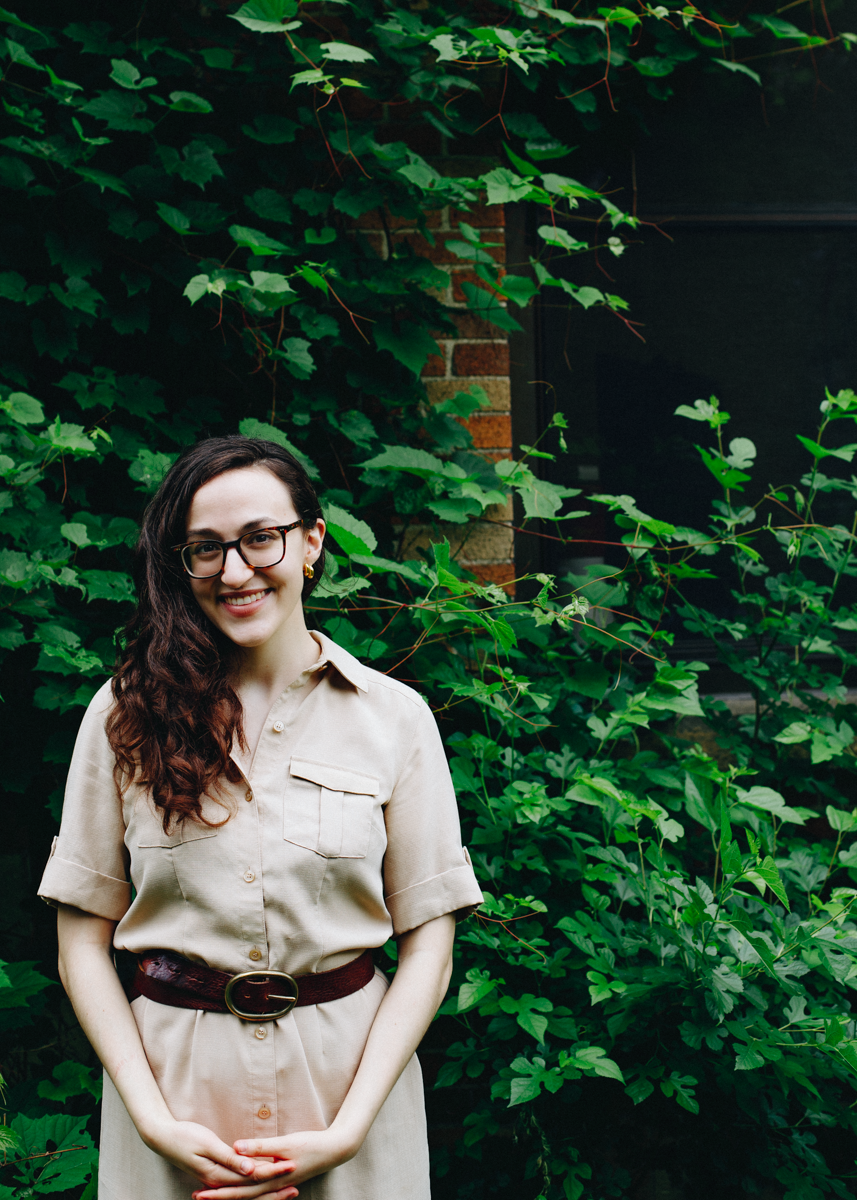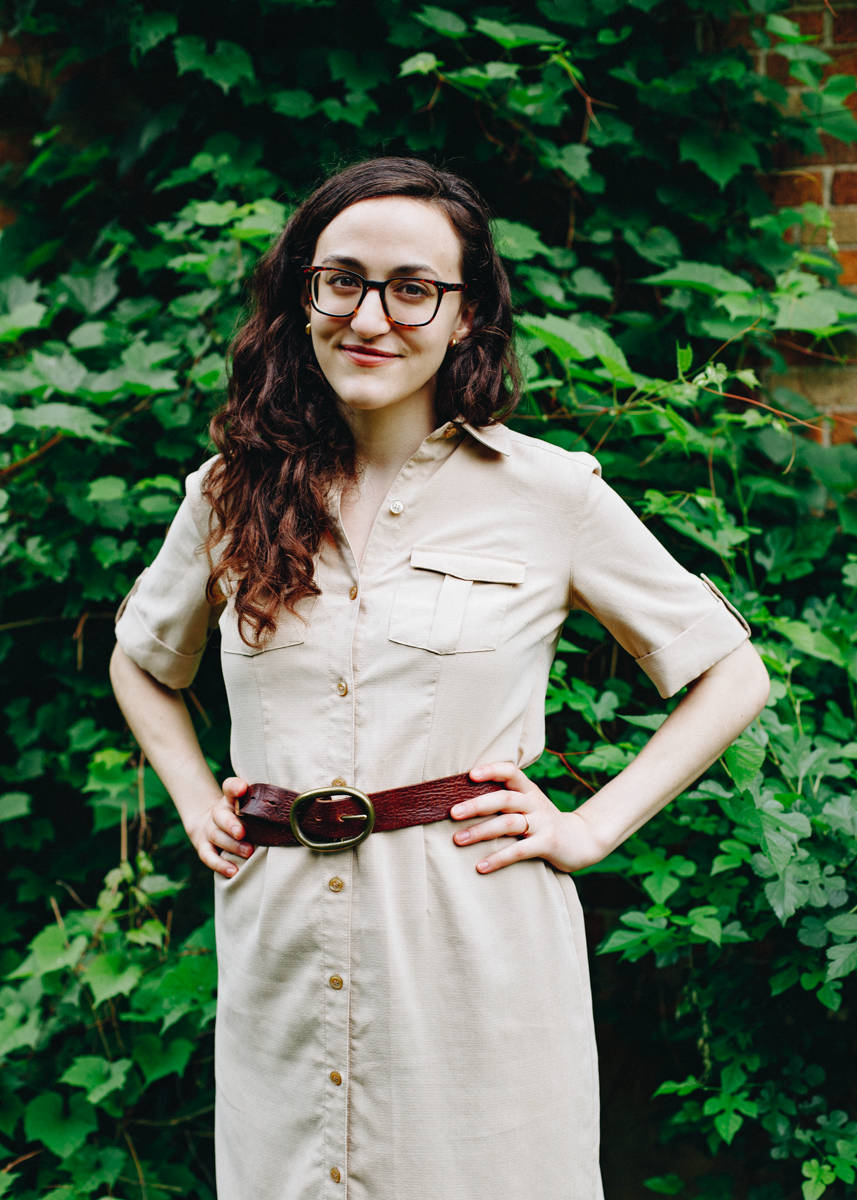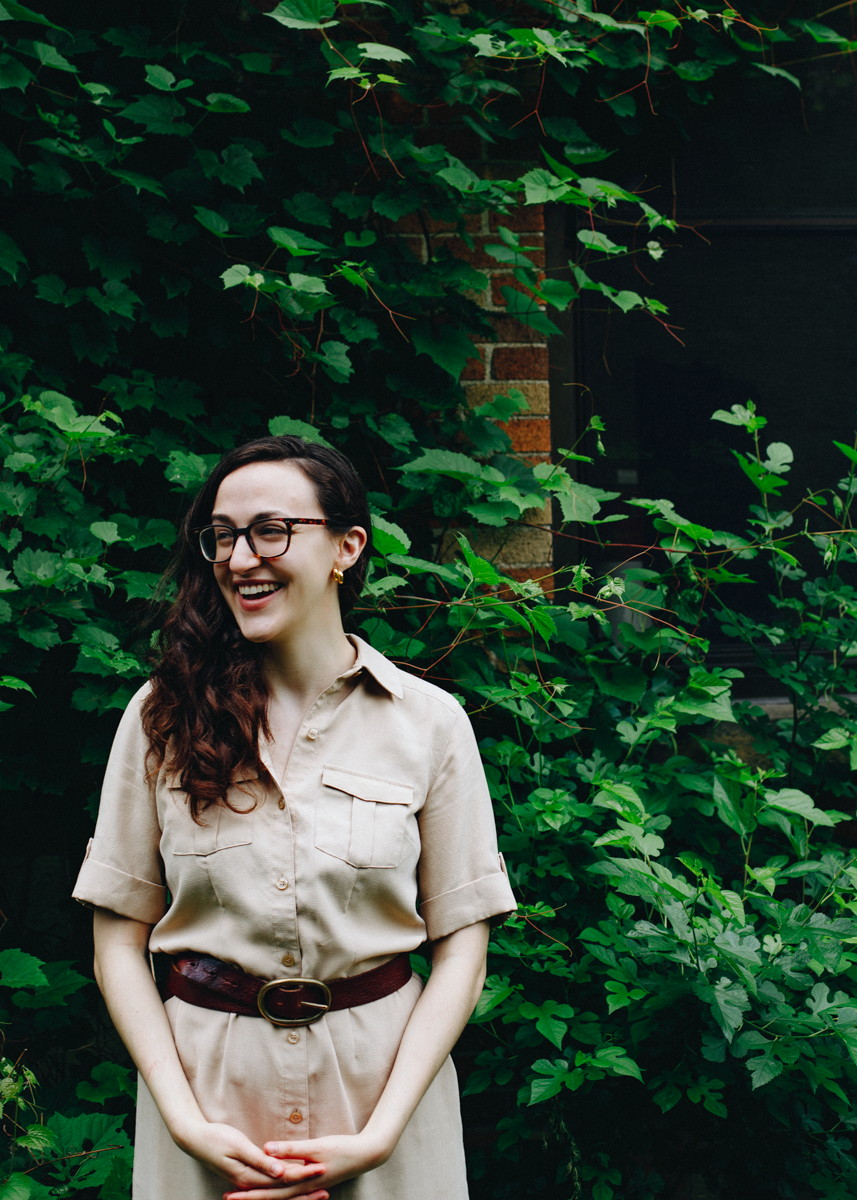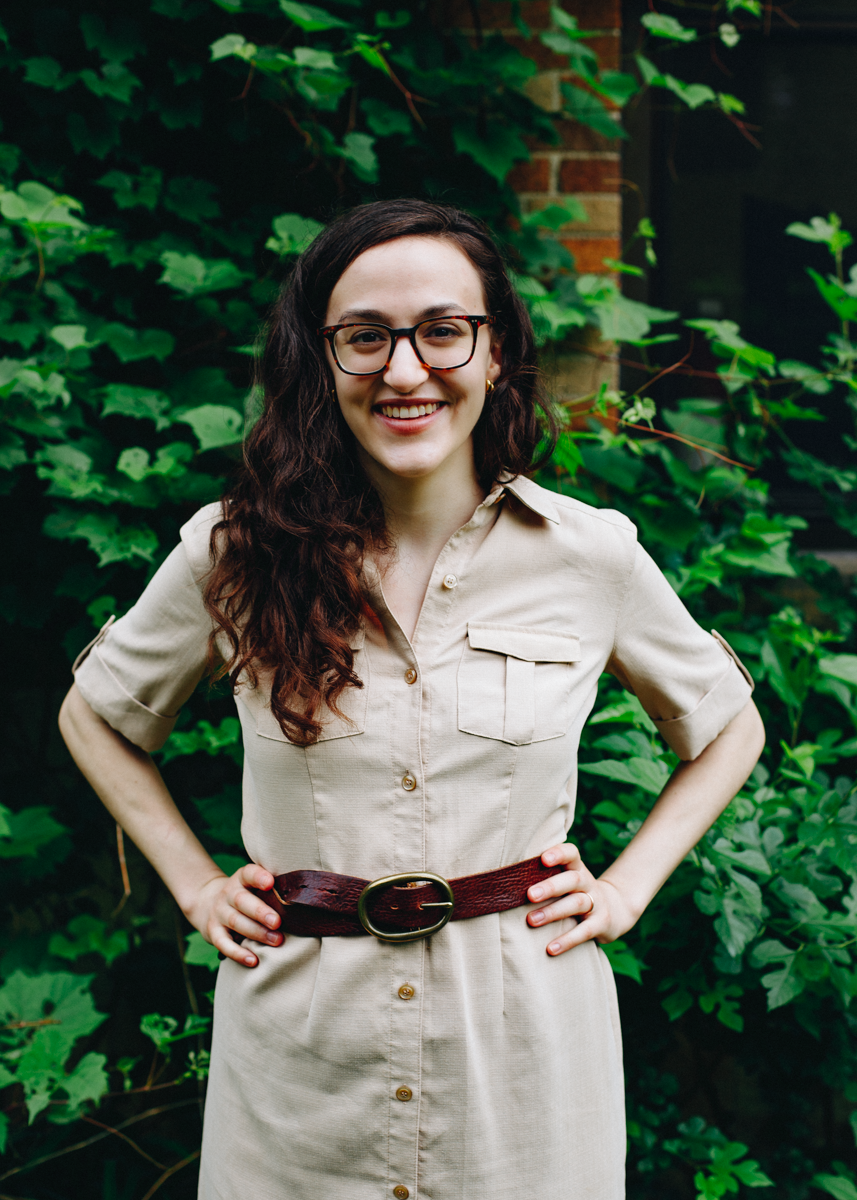Meet the Greener Pastures Team:
Sarah Carroll, Founder & Executive Director
In this series, get to know the people & faces who make up our team- and why we’re committed to making our food system more humane, sustainable, and just.
Story by Kayleen Nagell | Photography by Tim Schaefer
Q: Introduce yourself! Who are you and where are you located?
A: I’m Sarah Carroll (she/her) and I’m the founder and Executive Director of Greener Pastures. I earned my Masters in Public Policy and Masters in Business Administration from the University of Minnesota-Twin Cities and I live in Northeast Minneapolis.
Q: What role do you play in helping Greener Pastures meet its mission?
A: Since founding Greener Pastures in 2018, I've worked with our immensely passionate team and Board of Directors to help our food system move away from factory farming and toward humane, sustainable & just agriculture through the power of inspiring visual storytelling. I wear many hats- as our lead photographer/videography, I get to capture the critical work that regenerative farmers & food system reform advocates are doing day in and day out; I direct our programs and services, and; I work with coalition partners and donors to figure out how we can best support each other in service of a more pasture-based food system.
Q: Why did you choose to start Greener Pastures?
A: After years of working as a grassroots organizer and for nonprofits at the intersection of food, animal welfare, the environment and democracy work, I realized how many times the issues I was working on tied back to the insidious problem of corporate, highly consolidated industrialized animal agriculture. At the time, I didn't see many groups working to show the alternative- celebrating and highlighting the work of pasture-based sustainable farmers- as an entry point to help change hearts and minds about the future of our food system. So I thought, "that's what I have to do." The dream of Greener Pastures started in 2013 and I spent the 5 years before we launched figuring out the skillsets I needed to be able to bring this idea into the world.
Q: What is your food story? How/when did your interest in food become prominent for you?
A: My food story starts in Jugenheim, Germany, where my grandmother was born. My Nana Ruth came from a farming family- her parents raised cattle and were winemakers. When my grandmother and her parents were forced to flee Nazi Germany in the 1930s, they came as Jewish refugees to New York City. They finally were able to access land in upstate New York and start a new farm as Americans. My grandmother told me the stories of helping to milk the cows; the stories of my grandfather who was a butcher.
Fast forward to when I was a kid growing up in suburban Maryland and the farm long sold. My parents thought it would be fun to take my sister and me to a local farm to see how cows were milked. Little did they know they were taking us to a dairy CAFO (a factory farm) where I got to see the heartbreak up close of what a factory farm really looks like. The memory stayed with me for years, compelling me to take a close interest in where my food came from and issues of animal welfare. It sparked me to want to make real relationships with people who raised food in the way my grandmother's family did.
Q: What is a food fact that drives you to make changes in our food system?
A: 99% of animal products in the United States come from animals raised in factory farm conditions. That fact is mindboggling to me, especially when the average person wants their food to come from farms that are local, humane, sustainable, and just. And even more so when we notice that the number of farms on the land is dropping- but the number of farm animals being produced isn't, pointing to a disturbing picture of consolidation. For the sake of our rural communities, our health, our environment, and the welfare of farm animals and wildlife, we need a better system.
Q: What influences the food choices that you make?
A: I do my best to make food choices that prioritize supporting organic/regenerative production, animals raised in pasture-based systems, keeping dollars in my local food community, and supporting farms/food companies that put people above corporate profits.
Q: What is a top priority for you in changing our food system? How do you affect change?
A: Here's the fact of the matter: it's way too easy to be a mega factory farm and way too challenging to be a small, regenerative farm. We need food public policy that supports the movement away from factory farming- stopping new factory farms from encroaching on communities, stopping the big players from getting bigger, and phasing factory farms out of production- and food policy that supports regenerative farming and thriving local food systems- with solutions ranging from land access to incentives for soil health practices to support for farm hubs. How do we make this happen? By voting with our dollar when we're able to and by taking grassroots action in support of policies that move us in that direction.
Q: What’s one thing about Greener Pastures you want people to know?
A: At the core, we're storytellers. We have the immense privilege and pleasure of getting to spotlight, celebrate, and sing from the rooftops about some of the most inspiring individuals and organizations at the forefront of humane, sustainable farming. I believe that when we see what it looks like to be an ethical farm and see how regenerative farming methods make a difference for people, animals, the environment, and communities, it sparks us asking, "how can I support farms like that?", "how can I vote with my dollar for that?", "how can I take grassroots action to make farming like that the norm?" And we get to support our community in answering those critical questions.
Q: How would you explain food justice? How can we address issues related to food justice and/or racism in the food system?
A: So many things fall under the umbrella of how I understand food justice- it's making sure communities have the power and tools to be self-sufficient and self-sustaining. It's making sure all have access to healthy, nutritious, culturally appropriate food. It's making sure we have more farmers of color on the land; more womxn and queer folk on the land; more beginning farmers on the land. It's making sure farm workers get safe and fair working conditions. It's protecting the power of workers within the food system to collectively bargain. It's making sure that we identify and dismantle white supremacy in all the places it shows up in our food system (and beyond).
For me that starts with a lot of self work: understanding, as a white, cis, straight-passing woman in a food secure household, where my unearned privilege comes from and the ways in which I've internalized systems of oppression like racism, patriarchy, corporate capitalism, and more.
Q: What’s something you’ve changed in your behavior or approach to food as you’ve learned about issues in our food system?
A: Because I eat a vegetarian diet, I used to think I was automatically making humane choices by not eating factory farmed meat. But as I learned more about the production methods that go into raising eggs, dairy products, honey and more, I learned that wasn't quite the case. I've come to understand that the animal products I eat have an enormous impact on land, climate, and animal welfare. Now, when I buy from farms I've personally visited and love, I feel really confident that my values are aligning- which makes me enjoy my food all the more!
Q: What food related content are you reading, listening to, watching that you’re excited to share?
A: I'm currently reading Freedom Farmers: Agricultural Resistance and the Black Farmer Movement by Monica M. White from the library. And I started reading about raising my own chickens! I hope to raise my own backyard hens next year, so I’m currently accepting recommendations for good chicken names!







